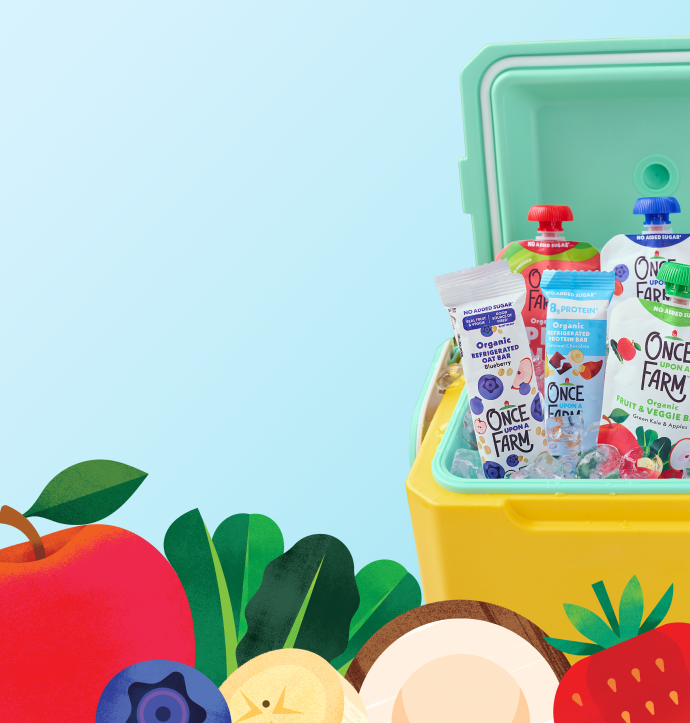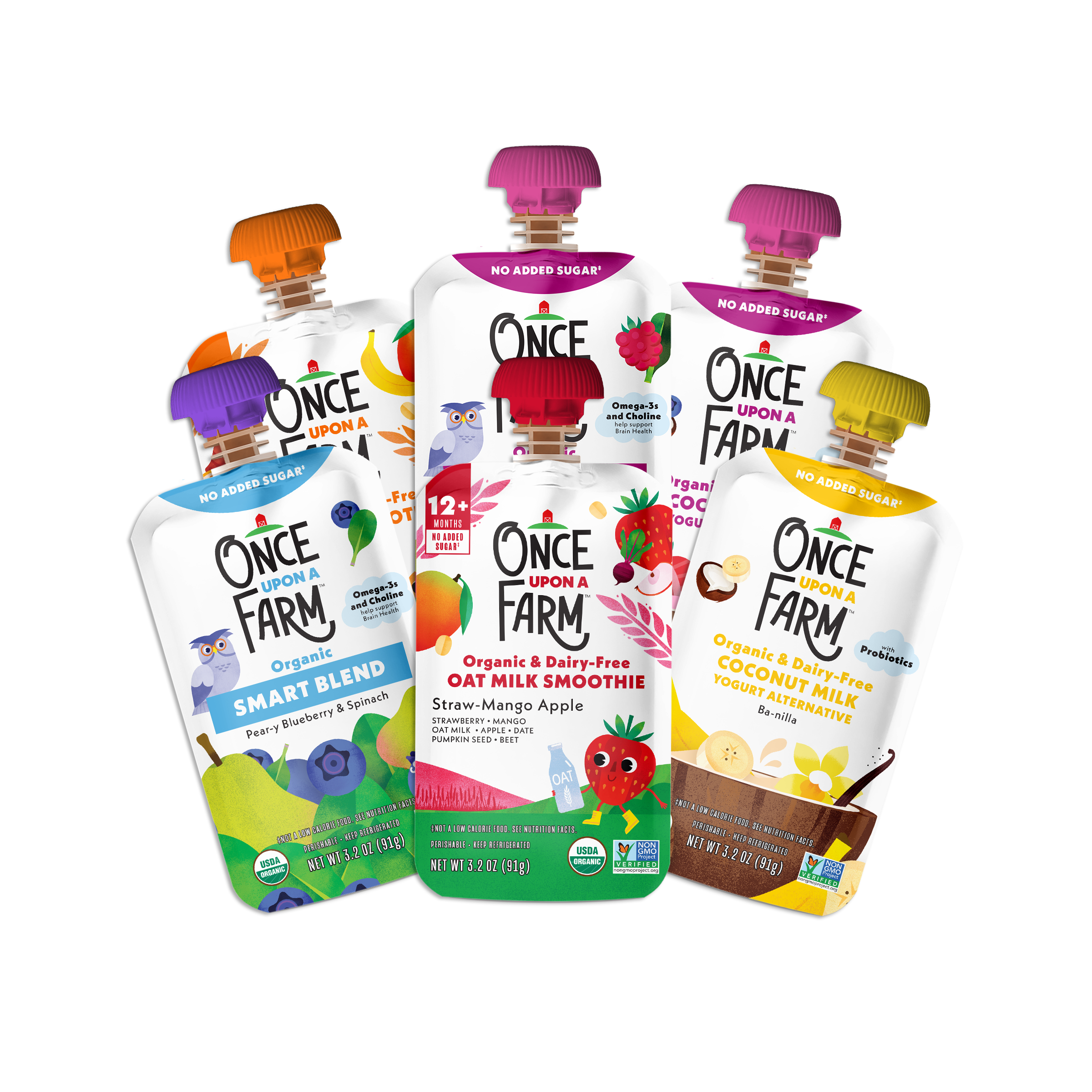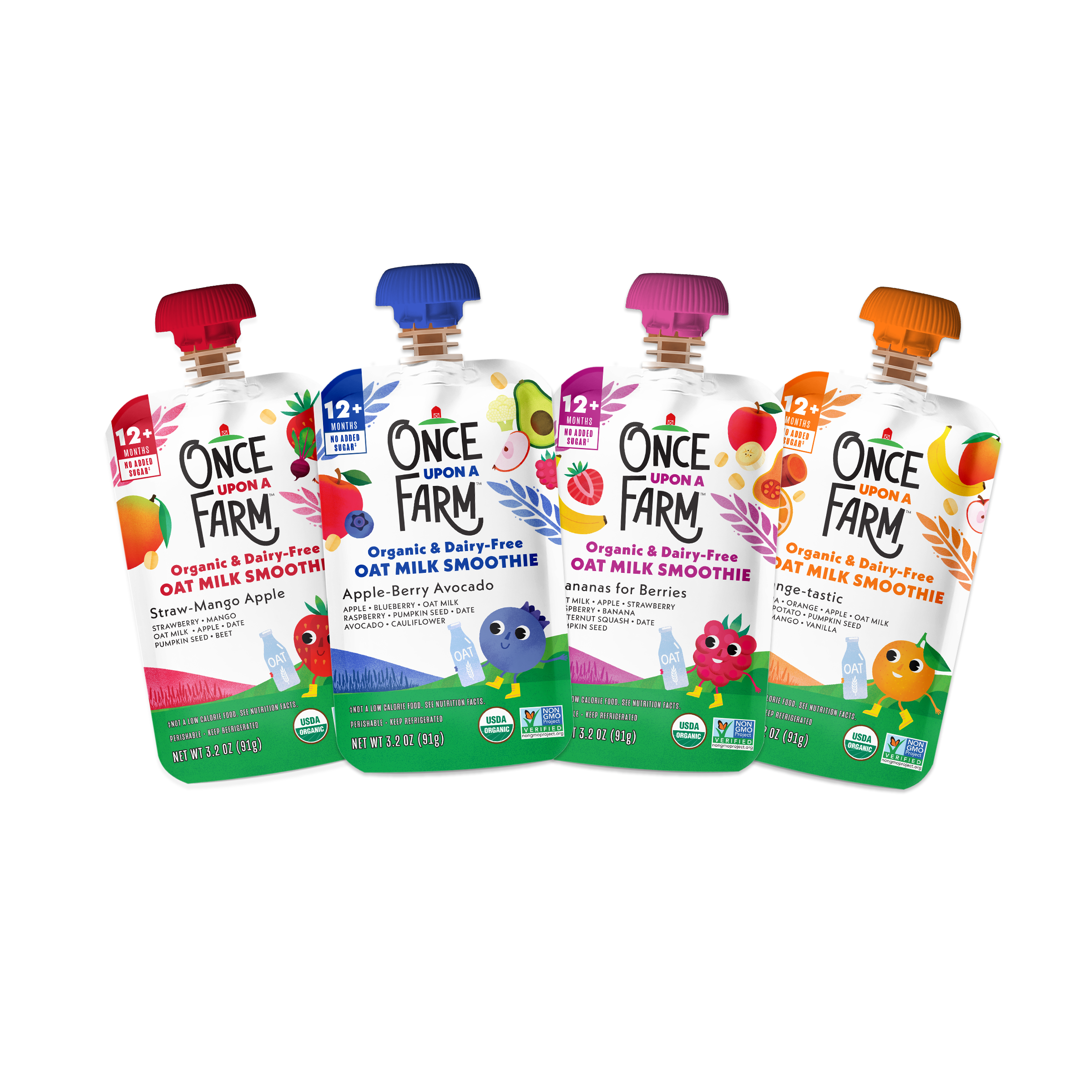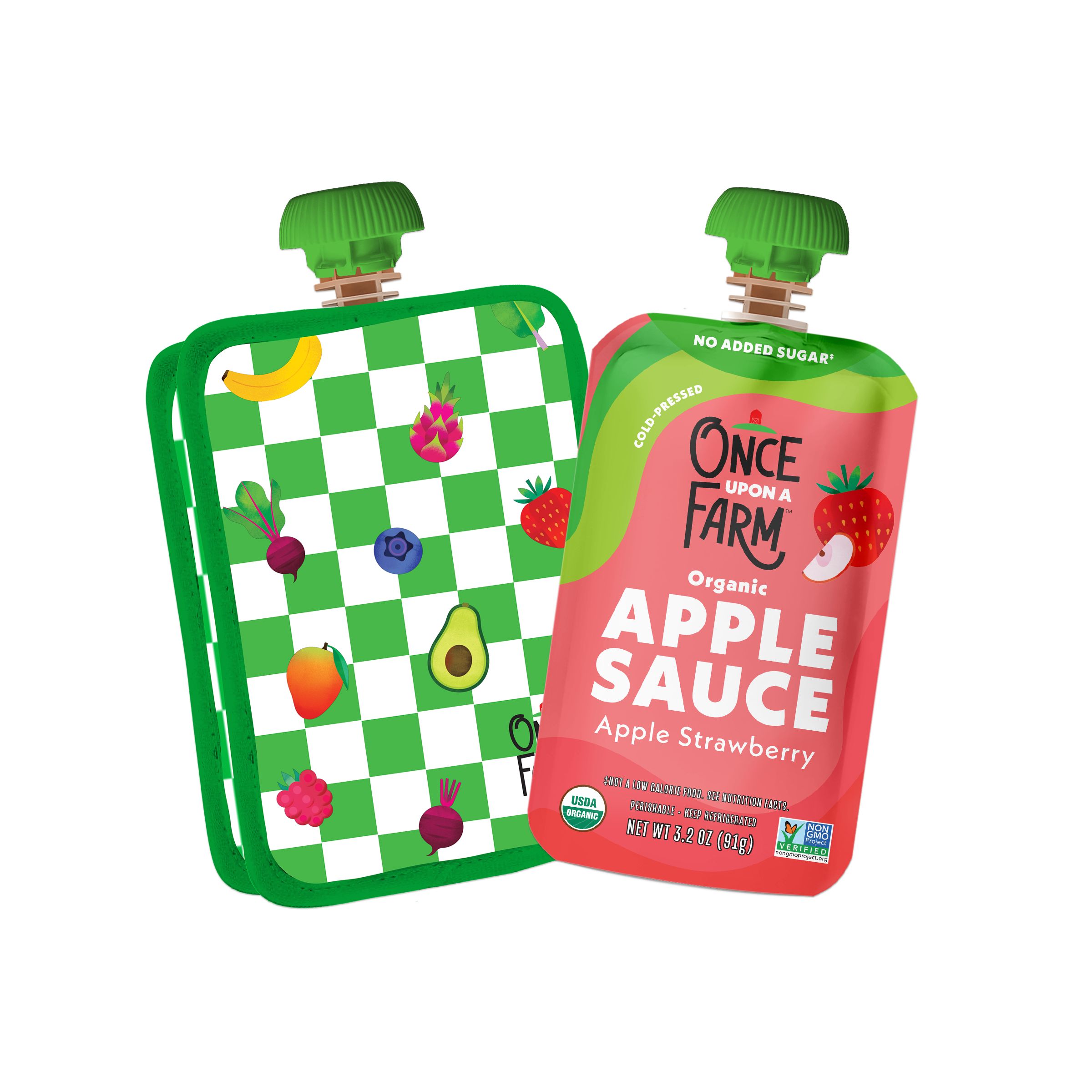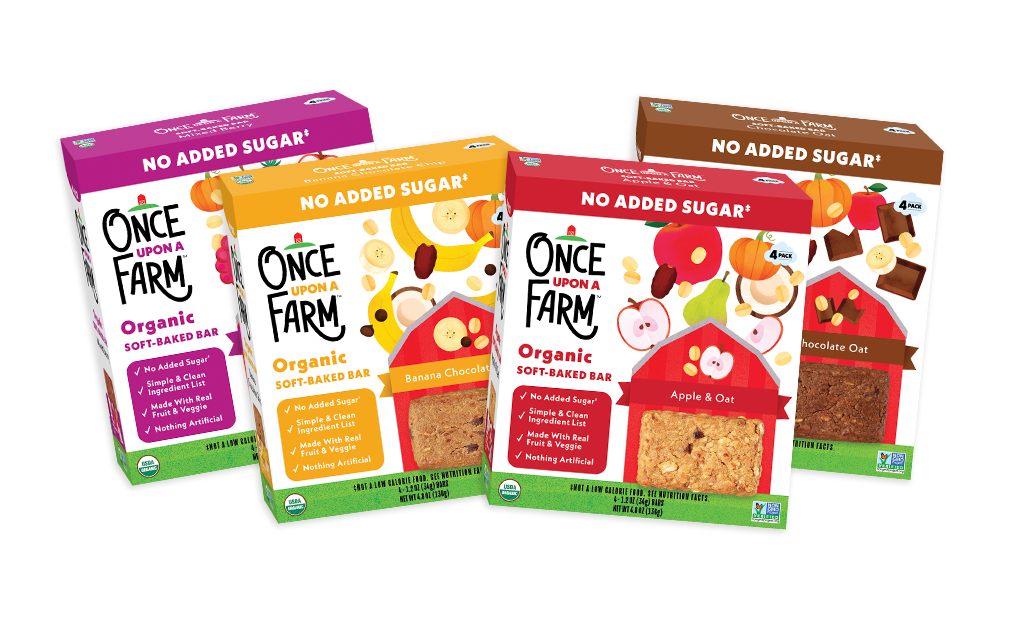Navigating parenting is no easy feat. Once you think you’ve got it down, everything changes. Two tricky topics include feeding and sleeping. We’ve got baby food and snacks covered for your little ones, but sleep habits and schedules are a different beast so we’re looking to the sleep masters at Taking Cara Babies for some help on the subject!
Introducing Solids & How It Affects Sleep
Beginning solids is a huge milestone for your baby and is one that should be celebrated! Regularly exposing your little one to different food options can prevent allergies, widen their taste palate, and set up a healthy relationship with food.
But if your baby isn’t sleeping, could this also be the magic solution to help fix those rough nights? Probably not.
Many hopeful parents truly believe that starting solids will be the turning point for those tough nights. However, research doesn’t support a significant connection between beginning solids and getting more sleep. (One study did show starting solids may increase sleep by about 15 minutes per night, but if you’re struggling with nights, you likely know that 15 minutes isn’t going to cut it.)
Adding cereal to a bottle, beginning solids before a baby is ready, or stuffing them full of food is not the solution for long, restful nights. In fact, studies show us that these three things can actually cause a disruption of sleep instead. Now, calories are an important component of restful nights, but adding solids is not the “fix” for most who are struggling with night sleep. Baby sleep is so much more complex than just the fullness of a tummy.
The answer for long, consolidated nights is a holistic approach with your baby.
Here are 6 elements vital to restful baby sleep:
1. Adequate daytime calories
We know that hungry babies don’t sleep well, and sleepy babies don’t eat well! Feedings and sleep are truly connected. In light of this, we must always be responsive to a baby’s hunger cues. What does that mean? If your baby is hungry- feed him! Remember, during the first year of life, the majority of a baby’s calories should come from breastmilk or formula, so we want to provide those full feedings every 2.5- 3.5 hours during the day.
Please know, offering solids at about 6 months IS developmentally appropriate for most babies. When your little one is ready, offer many fresh and organic options, but understand that these calories are supplemental and can’t replace those necessary full (breast/bottle) feedings.
2. Age-appropriate daytime schedule
Consolidated night sleep is directly impacted by what happens during the daytime. It’s important to have active awake-time, developmentally appropriate stimulation, and plenty of rest during the day too. (Yes, naps actually do help babies sleep better at nighttime.) Finding a flexible schedule that is age-appropriate will set your nights up for success.
3. Consistent bedtime routine
In the 30 minutes prior to bedtime, offer a consistent routine that helps calm your baby and prepare for sleep. It doesn’t have to be complicated. It just needs to be the same activities in the same order each night. For example: change into jammies, offer breast or bottle feeding, read a book, sing a song, and put down into the crib.
4. An environment conducive to sleep
Make sure baby is wearing comfortable clothing, has an environment that is slightly cooler (but not cold), is using a sound machine, and has a dark room.
Ability to fall asleep independently at bedtime and throughout the night. Having the ability to fall asleep at bedtime without being fed, rocked, or bounced to sleep is the building block for great nights. Why? Because no one actually sleeps through the night. We all awaken multiple times a night (often without even knowing we are awake).
The key to having long, consolidated nights is the ability to connect sleep cycles by putting ourselves BACK to sleep after these wakings. Babies have to learn to do the same, and it all starts by falling asleep independently.
5. The ability to fall asleep independently at bedtime and throughout the night
Having the ability to fall asleep at bedtime without being fed, rocked, or bounced to sleep is the building block for great nights. Why? Because no one actually sleeps through the night. We all awaken multiple times a night (often without even knowing we are awake).
The key to having long, consolidated nights is the ability to connect sleep cycles by putting ourselves BACK to sleep after these wakings. Babies have to learn to do the same, and it all starts by falling asleep independently.
6. Solution to reverse cycling
Often, exhausted parents are searching for a quick solution to get babies back to sleep in the night. For many, breast or bottle feeding is their go-to response. Initially, this seems harmless: a feeding here or there in the night feels like the answer. However, more night feedings can result in a baby who simply isn’t hungry during the day. Because he’s not hungry during the day, he won’t eat well. When night comes around, he’s hungry again and takes more and more feedings at night. The cycle repeats, and you have a legitimately hungry baby at night and a baby who doesn’t eat well during the day. The answer to breaking this cycle is to gradually wean night feedings so that your baby shifts all needed calories to the daytime.
Help is Available!
If your baby is missing one of these elements, baby sleep can be so tough. Please know, help IS available. “The ABC’s of Sleep” is an online class for parents of 5-24 month olds who are struggling with sleep. It will give you a step-by-step plan to 10-12 hour nights in the crib. This class will cover bedtime, night wakings, night weaning, and naps through the first two years of life. You’ll have a plan to follow anytime sleep is disrupted: through regressions, teething, illnesses, and setbacks too.
Now, if you already have a great little sleeper, you may be wondering if starting solids will cause problems. Typically there’s no need to worry, but here are a few things to keep your restful nights intact.
Starting solids is an important and exciting developmental time for parents and little ones, but please understand, it probably won’t be the answer to help you get consolidated night sleep.
—
Blog post by Cara from Taking Cara Babies! Cara is a mom of four, neonatal nurse, and wife of a pediatrician. Her passion is teaching parents how to help their babies sleep with the science of a nurse and the heart of a mama so they can reclaim the joy of parenthood.




